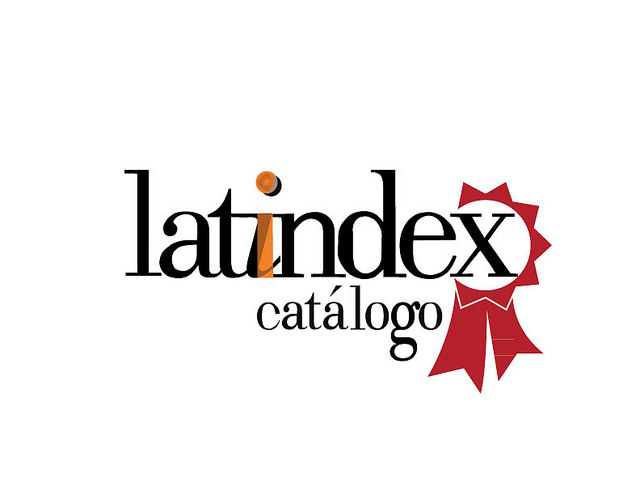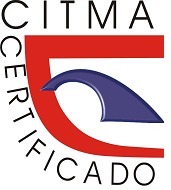Aproximación cienciométrica a la investigación sobre educación en el contexto de la pandemia de COVID-19
Palabras clave:
Cienciometría, COVID-19, Educación, Pandemia, Tendencias educativasResumen
La rápida propagación de la pandemia de COVID-19 afectó todos los aspectos de la vida. Esta realidad provocó la suspensión de las actividades educativas presenciales y la apertura total del proceso de enseñanza-aprendizaje en línea con enfoques alternativos e investigaciones novedosas que es necesario examinar en búsqueda de soluciones efectivas. Ante esta problemática, el presente estudio tiene como objetivo realizar un análisis cienciométrico de la investigación sobre educación en tiempos de COVID-19 en 2020, que contribuya a la representación intelectual de este dominio científico. La investigación es de tipo descriptiva y emplea una metodología mixta. Se empleó como fuente primaria de información la colección principal de Web of Science. Se analizaron indicadores cienciométricos como: co-autoría, análisis de co-ocurrencia, citación, co-citación y acoplamiento bibliográfico. Los datos fueron procesados con el gestor de referencias EndNote X9 y VosViewer. Del total de 478 publicaciones, las principales revistas están relacionadas con la educación en el área de la medicina y poseen elevados factores de impacto. Los temas de investigación claves están relacionados con la descripción del coronavirus y el proceso de enseñanza-aprendizaje en línea en el contexto de la pandemia. La producción científica elevada con tendencia a un rápido crecimiento, la preponderancia de publicaciones en revistas de alto impacto, la tendencia al aumento de citas de los artículos y la colaboración internacional, evidencian la trascendencia de la investigación en educación en el contexto de la pandemia, lo que es, sin dudas, un indicativo de un futuro prometedor para este campo de investigación.
Citas
Aleixandre-Benavent, R., Agulló-Calatayud, V., Alonso-Arroyo, A., Bueno-Cañigral, F. J., Castelló-Cogollos, L., Lucas-Domínguez, R., … Valderrama-Zurián, J. C. (2021). Investigación española en las áreas de adicciones y de trastornos de la alimentación: análisis de la producción, colaboración e impacto científico (1962-2017). Revista Española de Documentación Científica, 44(3), e299. doi: 10.3989/redc.2021.3.1766
Cardona-Román, D. M., & Sánchez-Torres, J. M. (2017). Análisis cienciométrico de la producción científica acerca de la investigación sobre la evaluación de la implementación del e-learning en el periodo 2000-2015. Educación, 26(51), 7-34. doi: 10.18800/educacion.201702.001
Chick, R. C., Clifton, G. T., Peace, K. M., Propper, B. W., Hale, D. F., Alseidi, A. A., … Vreeland, T. J. (2020). Using Technology to Maintain the Education of Residents During the COVID-19 Pandemic. Journal of surgical education, 77(4), 729-732. doi: 10.1016/j.jsurg.2020.03.018
Garfield, E. (2001). From bibliographic coupling to co-citation analysis via algorithmic historio-bibliography. Philadelphia: Speech delivered at Drexel University.
Glänzel, W. (2002). Coauthorship Patterns and Trends in the Sciences (1980-1998): A Bibliometric Study with Implications for Database Indexing and Search Strategies. Library Trends 50(3), 461-473. Recuperado de http://hdl.handle.net/2142/8409
Huang, C., Wang, Y., Li, X., Ren, L., Zhao, J., Hu, Y., … Cao, B. (2020). Clinical features of patients infected with 2019 novel coronavirus in Wuhan, China. Lancet, 395(10223), 497-506. doi: 10.1016/S0140-6736(20)30183-5
Jebari, C., Herrera-Viedma, E., & Cobo, M. J. (2021). The use of citation context to detect the evolution of research topics: a large-scale analysis. Scientometrics, 126, 2971-2989. doi: 10.1007/s11192-020-03858-y
Li, J., Goerlandt, F., & Reniers, G. (2021). An overview of scientometric mapping for the safety science community: Methods, tools, and framework. Safety Science, 134, 105093. doi: 10.1016/j.ssci.2020.105093
Liskiewicz, T., Liskiewicz, G., & Paczesny, J. (2021). Factors affecting the citations of papers in tribology journals. Scientometrics, 126, 3321-3336. doi: 10.1007/s11192-021-03870-w
Mulenga, E. M., & Marbán, J. M. (2020). Is COVID-19 the gateway for digital learning in mathematics education? Contemporary Educational Technology, 12(2), ep269. doi: 10.30935/cedtech/7949
Murphy, M. P. A. (2020). COVID-19 and emergency eLearning: Consequences of the securitization of higher education for post-pandemic pedagogy. Contemporary Security Policy, 41(3), 492-505. doi: 10.1080/13523260.2020.1761749
Popyk, A. (2020). The impact of distance learning on the social practices of schoolchildren during the COVID-19 pandemic: reconstructing values of migrant children in Poland. European Societies, 23, S530-S544. doi: 10.1080/14616696.2020.1831038
Rose, S. (2020). Medical Student Education in the Time of COVID-19. JAMA, 323(21), 2131-2132. doi: 10.1001/jama.2020.5227
Roslee, A. F. A., Ahmad, S. A., Gomez-Fuentes, C., Shaharuddin, N. A., Khalil, K. A., & Zulkharnain, A. (2021). Scientometric Analysis of Diesel Pollutions in Antarctic Territories: A Review of Causes and Potential Bioremediation Approaches. Sustainability, 13(13), 7064. doi: 10.3390/su13137064
Santiago, A. L., Demajorovic, J., Rossetto, D. E., & Luke, H. (2021). Understanding the fundamentals of the Social Licence to Operate: Its evolution, current state of development and future avenues for research. Resources Policy, 70, 101941. doi: 10.1016/j.resourpol.2020.101941
Shoaib, M., Ali, N., Anwar, B., & Shaukat, B. (2021). Plotting the Literature on Learning Outcomes and Academic Performance in Higher Education from 2001 to 2020: A Scientometric Analysis. Library Philosophy and Practice (e-journal), 5919. Recuperado de https://digitalcommons.unl.edu/libphilprac/5919
Tan, H. R., Chng, W. H., Chonardo, C., Ng, M. T. T., & Fung, F. M. (2020). How Chemists Achieve Active Learning Online during the COVID-19 Pandemic: Using the Community of Inquiry (CoI) Framework to Support Remote Teaching. Journal of Chemical Education, 97(9). doi: 10.1021/acs.jchemed.0c00541
Torres‐Pruñonosa, J., Plaza‐Navas, M. A., Díez‐Martín, F., & Beltran‐Cangrós, A. (2021). The Intellectual Structure of Social and Sustainable Public Procurement Research: A Co‐Citation Analysis. Sustainability, 13, 774. doi: 10.3390/su13020774
van Eck N. J., & Waltman L. (2014). Visualizing Bibliometric Networks. En: Y. Ding, R. Rousseau y D. Wolfram (Eds.), Measuring Scholarly Impact. [versión electrónica de Springer, Cham]. doi: 10.1007/978-3-319-10377-8_13
Zayapragassarazan, Z. (2020). COVID-19: strategies for online engagement of remote learners. F1000Research, 9(273), 1-18. doi: 10.7490/f1000research.1117846.1
Zhao, T., Guo, J., Song, Y., Chen, H., Sun, M., Chen, L., … Sun, J. (2021). A Bibliometric Analysis of Research Trends of Acupuncture Therapy in the Treatment of Migraine from 2000 to 2020. Journal of Pain Research, 14, 1399-1414. doi: 10.2147/JPR.S306594
Zheng, F., Abbas Khan, N., & Hussain, S. (2020). The COVID 19 pandemic and digital higher education: Exploring the impact of proactive personality on social capital through internet self-efficacy and online interaction quality. Children and Youth Services Review, 119, 105694. doi: 10.1016/j.childyouth.2020.105694
Descargas
Publicado
Cómo citar
Número
Sección
Licencia
Derechos de autor 2022 Roelvis Ortiz Núñez, Stephany Novo Castro

Esta obra está bajo una licencia internacional Creative Commons Atribución-NoComercial 4.0.













